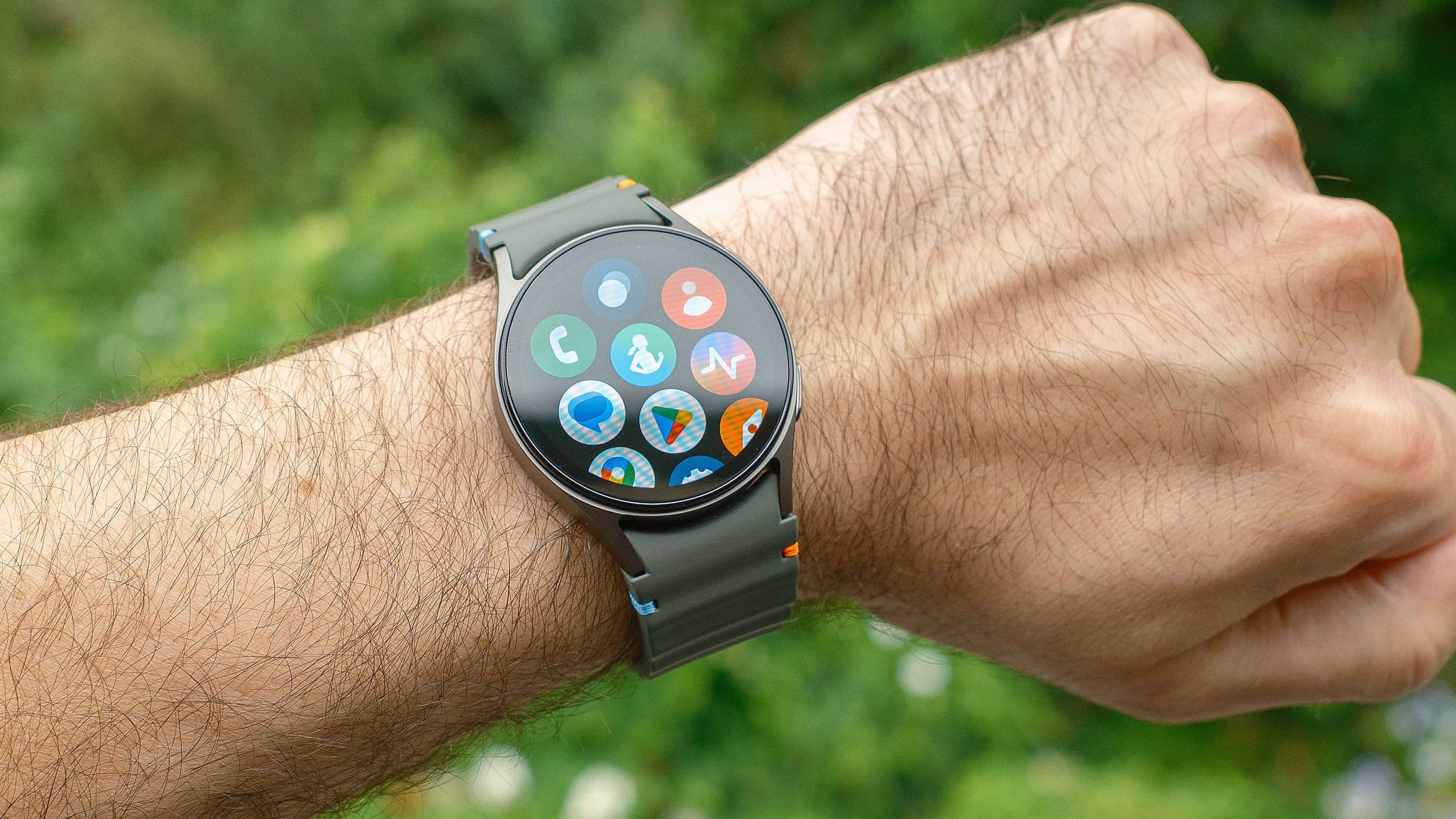
In most regards, the Samsung Galaxy Watch 7 isn't a huge upgrade over the Samsung Galaxy Watch 6. Both iterations share the same design, screen, battery, and price tag. However, under the hood, things have been reworked with a new BioActive health sensor, faster processor, upgraded GPS, and greater storage capacity.
Galaxy AI also comes to the Galaxy Watch in the form of advanced and genuinely useful health tools and insights, making the smartwatch a more intelligent fitness/holistic tracker than before. That said, some of the things we didn't like about the Galaxy Watch 6, most notably, middling battery life, remain the same.
Drawbacks aside, the $299 Galaxy Watch 7 — which offers all the same wellness features as the $649 Galaxy Watch Ultra — is easily the best Android smartwatch for the money in 2024 when it comes to monitoring your health. Find out why in my review below.
Samsung Galaxy Watch 7 review: Specs
Samsung Galaxy Watch 7 review: price and availability
The Samsung Galaxy Watch 7 is available for pre-order as of July 10, 2024 and general availability starts on July 24. The 40mm version starts at $299, and the larger 44mm version is priced at $329. LTE-supported models are an additional $50 for both sizes.
For reference, this is the same pricing structure as the as the Galaxy Watch 6, continuing to undercut the prices of the Pixel Watch and Apple Watch flagships.
You can pick up the Galaxy Watch 7 in Green, Silver or Cream depending on the size. The Green option is quite dark, though I'm a bit surprised there's no black or graphite-colored option.
Samsung Galaxy Watch 7 review: design
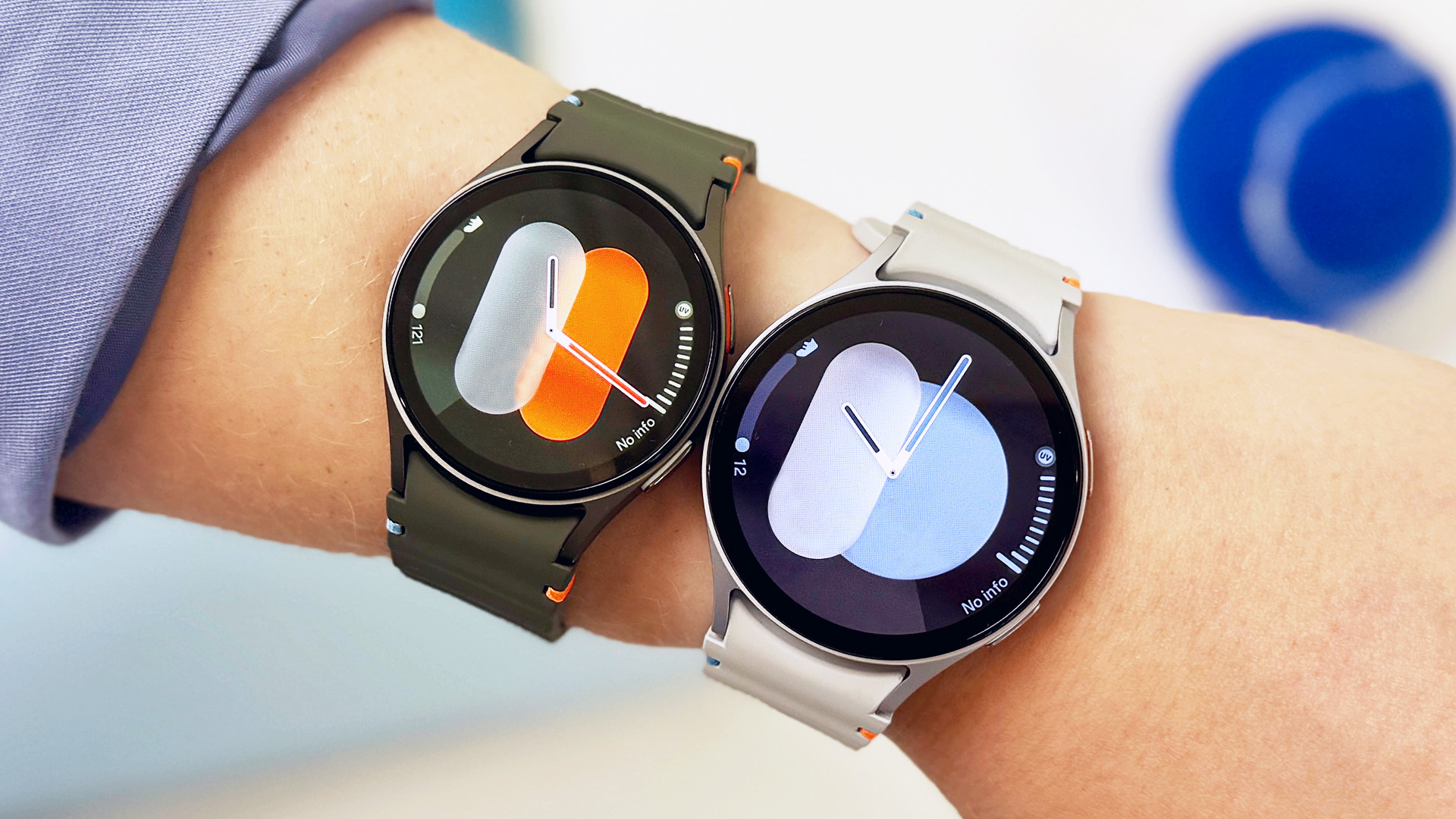
The Samsung Galaxy Watch 7 shares the same basic design as its predecessor, the Samsung Galaxy Watch 6, with a circular watch face, high-res AMOLED touch-sensitive screen, two physical buttons along the right side of the case, and a reasonably thin overall design.
On my 6.5-inch wrist, the 40mm wears comfortably and appears well-proportioned. Whether wearing a mechanical or a smartwatch, I tend to find watches that are between 38mm to 42mm to be my sizing sweet spot and the 40mm Galaxy Watch is no exception. It's also pretty comfy to wear to bed.
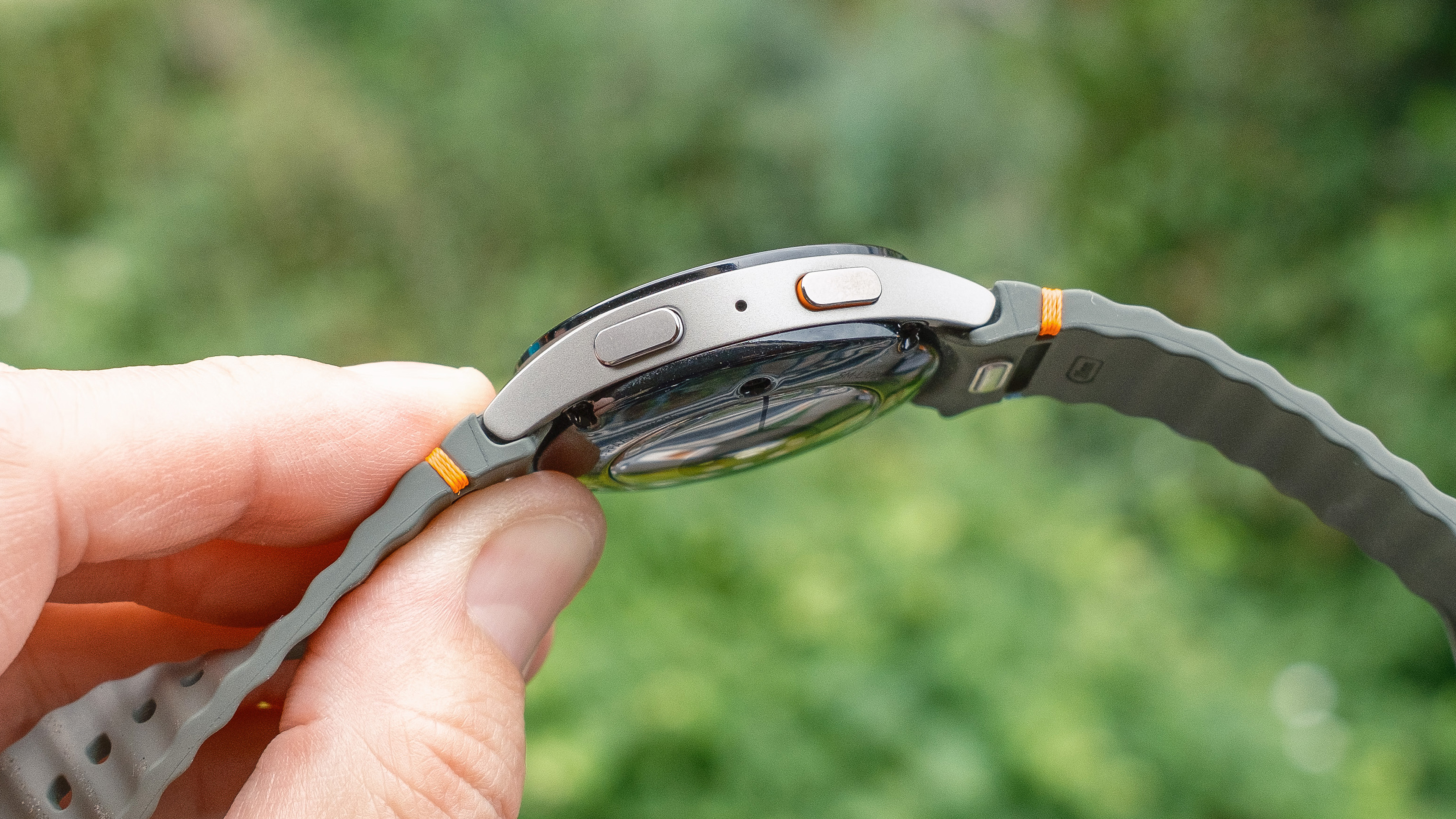
The Galaxy Watch 7 also doesn't necessarily look like a smartwatch at first glance, unlike other popular square-format wearables. This isn't to say you could get away wearing it with a suit, but I find it less geeky looking than my go-to Apple Watch SE.
Below the surface, you get an upgraded dual-band GPS antenna for better location tracking in urban and/or wooded areas, along with 32GB of storage space, up from 16GB on the Galaxy Watch 6.
For location tracking while working out, I tested the Galaxy Watch 7's GPS accuracy against both the Apple Watch SE (2022) and Garmin Forerunner 165 with excellent results.
The Galaxy Watch 7 beat the Garmin Forerunner 165 in both GPS connectivity speed and accuracy on a recent bike ride through Seattle, Washington, and was a match with the Apple Watch in terms of both distance and elevation gain data during an urban hike and while biking.
Samsung Galaxy Watch 7 review: health and sleep tracking
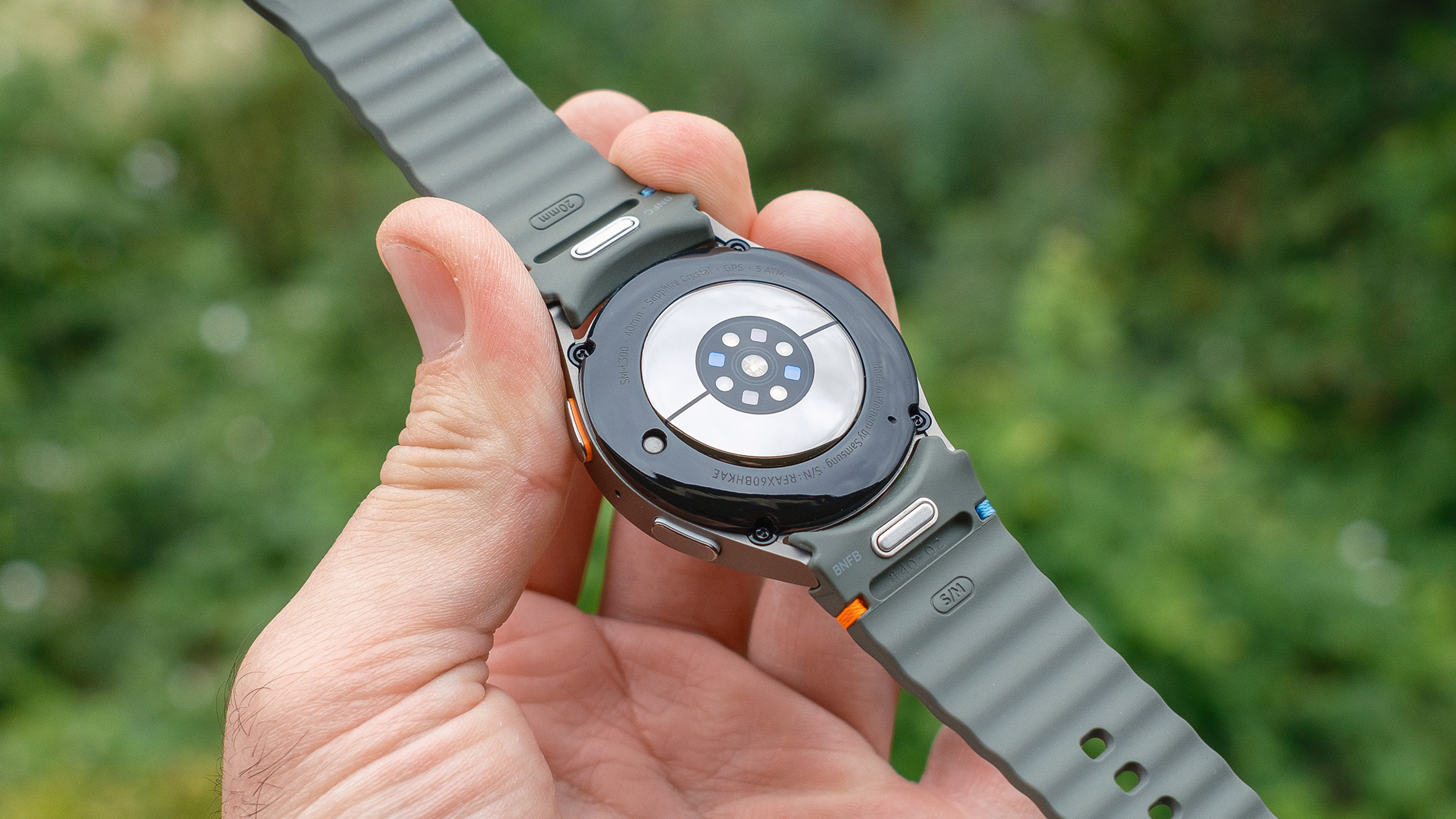
Most of the holistic health-tracking features on the Galaxy Watch 7 are powered by Samsung's BioActive sensor, which is a combined PPG heart rate/ECG/blood oxygen reader and bioelectric impedance analysis (BIA) sensor that can analyze body composition.
With the help of an upgraded processor — with three times the speed of its predecessor — data from the newly-upgraded BioActive sensor is accompanied by all sorts of useful wellness insights and tips, whether you're digging into your daily Sleep Score or the device's new (also daily) Energy Score.
The latter takes into account both sleep quality and the previous day/week's workout efforts. Like the Sleep Score, it's on a scale from one to 100. I found both metrics to be good motivational tools for getting myself to bed early and avoiding bad habits, such as late-night indulgences.
Of course, I'm not perfect, and the one night I did stay up far past my bedtime eating dairy-free Ben & Jerry's and sipping a glass of red wine, I was scolded the next morning with a polite but stern message to the tune of, "Late night snacking or consuming alcohol is bad for your sleep. Here's the proof..."
Busted.
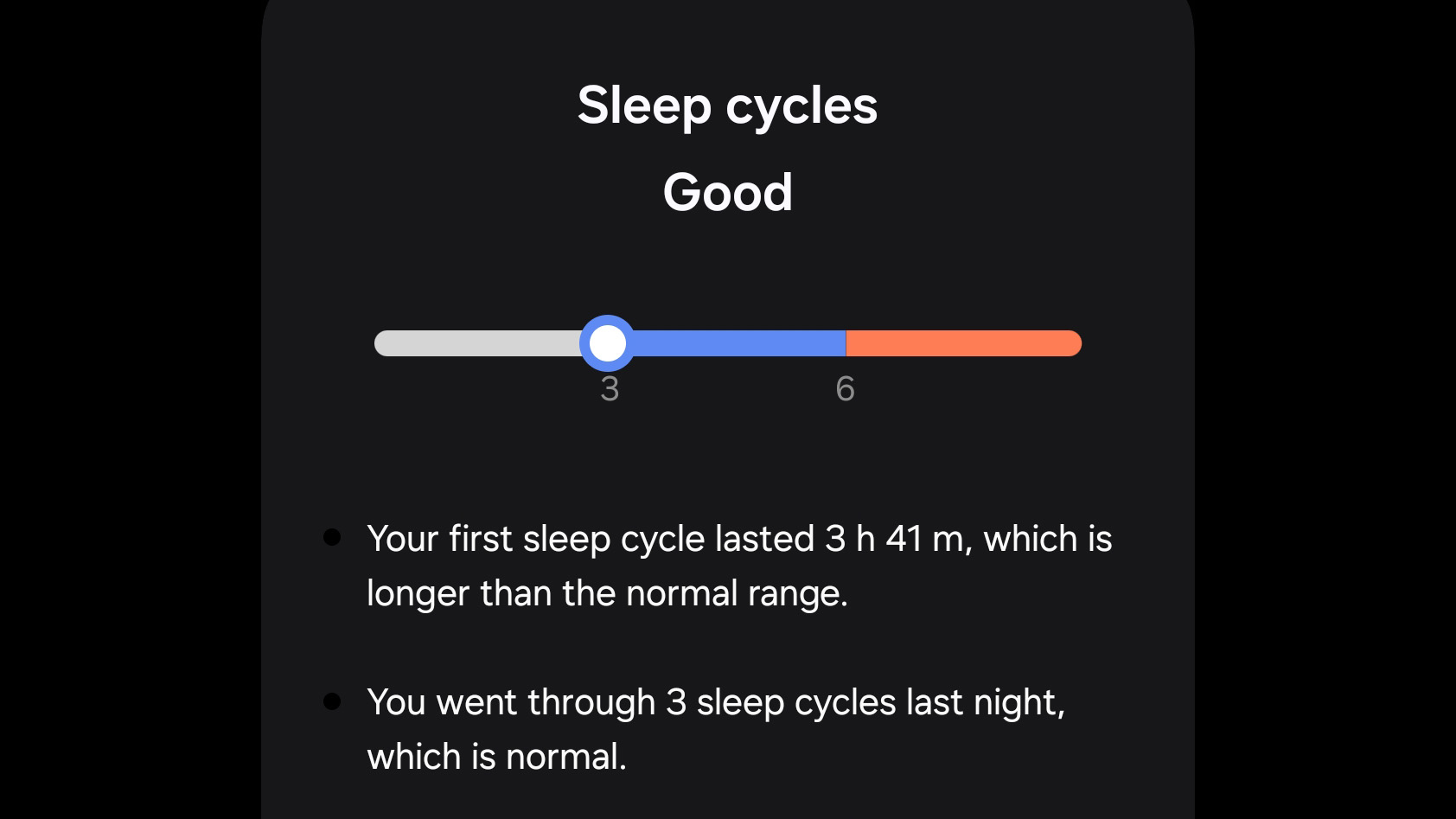
Of all the new health features on Galaxy Watch 7, the sleep analysis data impresses me the most both in terms of volume and ease of digestion. I also appreciate the fact that you get a full sleep report even after one night of use.
The Samsung Health app on the watch provides only an overview of your sleep data. For the deep dive, you'll need to open the app on a paired Galaxy smartphone. Fortunately, the Watch 7 and Samsung Health smartphone app sync almost instantaneously.
The app provides sleep insights in an easy-to-understand format with a mix of visualizations and numbers to guide you. Insights include details on time spent asleep, sleep cycles, blood oxygen levels, skin temperature, snoring, body movement, heart rate, and respiratory rate.

From these insights and after a full week of tracking, I learned that I tend to fall asleep pretty fast and stay asleep for the majority of the night (#blessed). I also discovered that my Sleep Score tends to be a tad higher when I wear an airway-opening nasal strip to bed.
As noted, all of the sleep data is accompanied by AI-generated insights and tips to help you better understand your nightly metrics and long-term trends. I found these tips especially useful for the sleep cycle analysis. The Galaxy Watch 7 taught me that someone my age should spend an average of 19-27% of their time sleeping in REM each night. Fortunately, my REM time has been trending toward 25%, so, no worries there.
The Galaxy Watch 7 also boasts FDA-authorized sleep apnea detection, a first for an Android wearable. To use the feature you'll need to manually switch it on from within the Health Monitoring app; it takes two nights of tracking to produce a result.
Sleep apnea is a potentially complex disorder that can increase your risk for heart-related conditions and stroke. It also impacts members of my family, so, I was particularly curious/nervous to give detection a try.
The Galaxy Watch 7 found no signs of the disorder during my testing, thankfully. However, if it does, you'll receive a message recommending further medical analysis by a professional.
By the way, it takes about 90 minutes for the Samsung Health app to process your sleep data each morning.
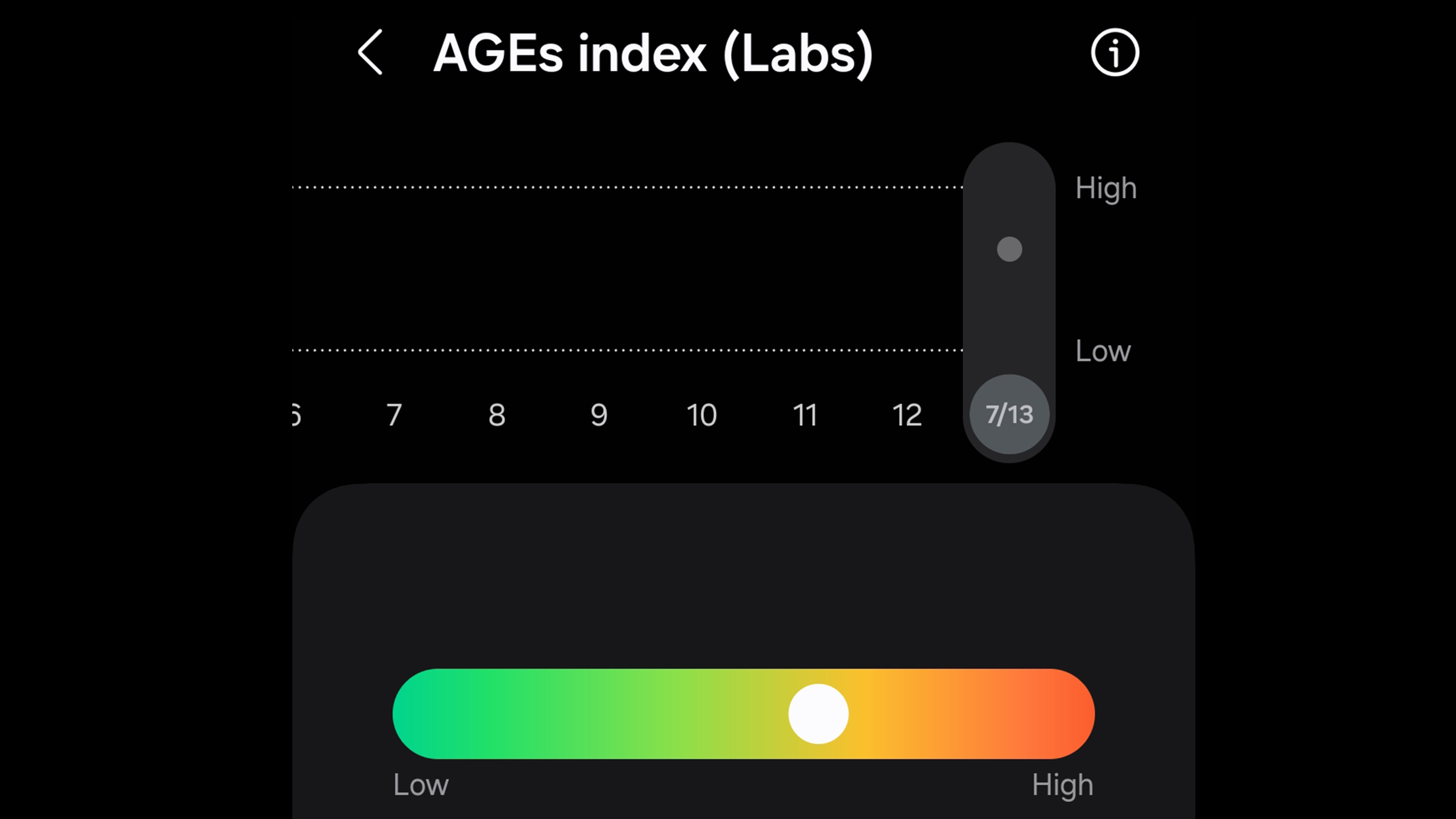
The Galaxy Watch 7 can also perform Advanced Glycation End Products (AGEs) Index tracking while you sleep, something that sets it apart from most other wellness wearables. AGEs are an indicator of metabolic health and biological aging, informed by lifestyle and dietary habits.
Non-invasive AGEs Index monitoring could potentially let users know if they're at a higher risk of heart disease or other ailments caused by high levels of harmful sugar and fat compounds. Instead of a number, your AGE index score is presented in graph form and updated daily.
You can also dig into your metabolic health via the Samsung Health app. A quick measurement involves placing two fingers on the watch's buttons and holding still for about 15 seconds. That simple act, along with adding height and weight info, generates insights into skeletal muscle weight, fat, water weight, and your body mass index.
Samsung Galaxy Watch 7 review: performance
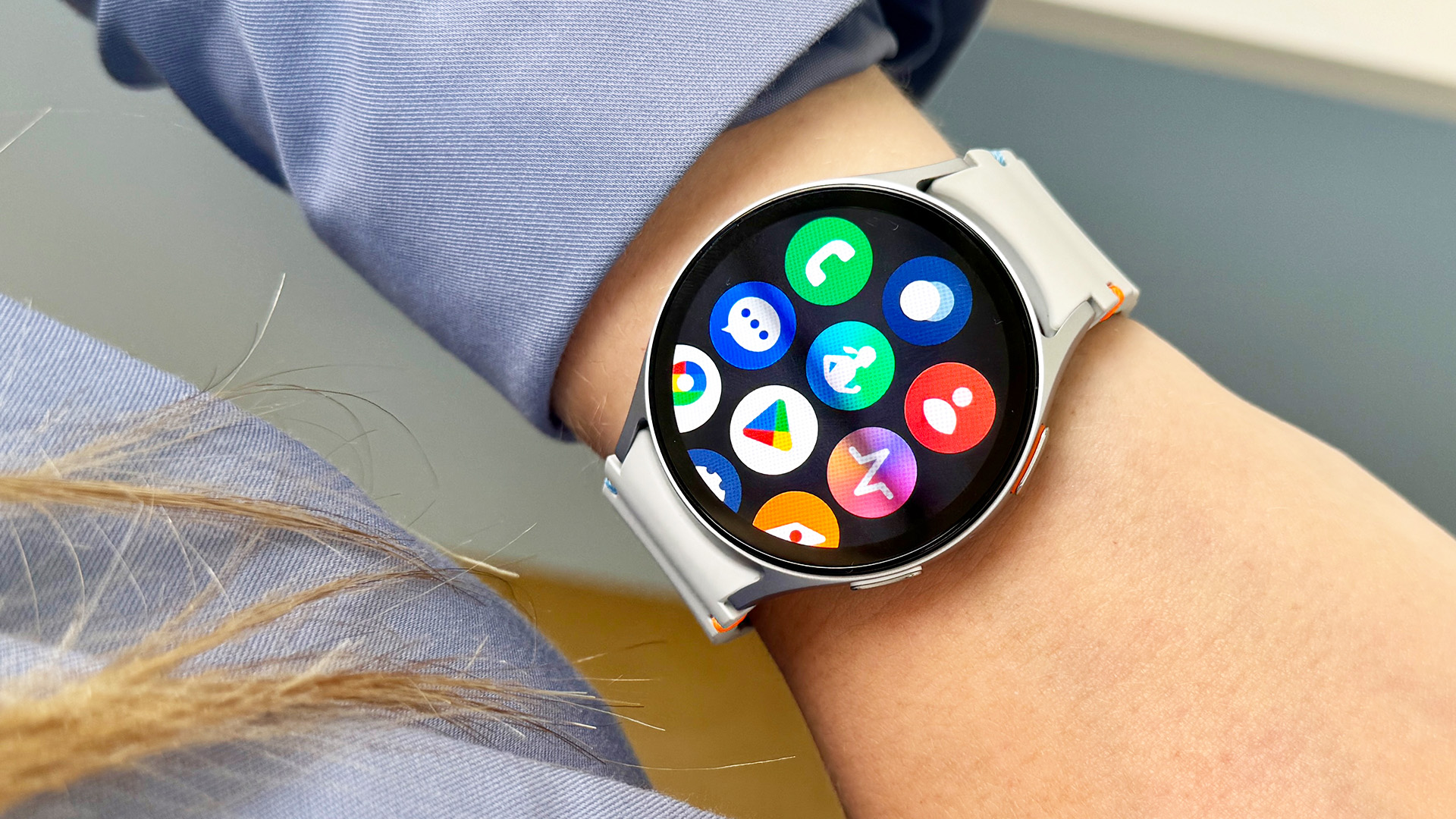
The Samsung Galaxy Watch 7 is the first smartwatch to launch with Wear OS 5, the latest version of Google's wearable software.
It's supposed to bring more running metrics and better battery efficiency, though Samsung curates the software with the One UI Watch 6 skin, so it feels more like a Samsung watch than any other Android smartwatch.
So, in addition to Google apps, the Galaxy Watch 7 is loaded with Samsung apps. You can download additional third-party apps from the Google Play Store, too. And processing takes place on a 3nm chip — a first for Samsung.
3mn chips are widely considered to offer the best computing efficiency currently available for wearable devices. Though it's difficult to gauge the actual performance quality, Samsung says the Galaxy Watch 7 has 3x faster CPU performance and 30% improved power efficiency.
Taking a play from Apple's book, the Galaxy Watch 7 gets a Double Pinch Gesture for controlling the watch or connected Galaxy phone with just one hand. However, I haven't found much use for it outside of triggering the camera shutter on my paired S24 smartphone. Compared to the useful Double Tap for Apple Watch, Samsung definitely has room for innovation here.
Samsung Galaxy Watch 7: battery life
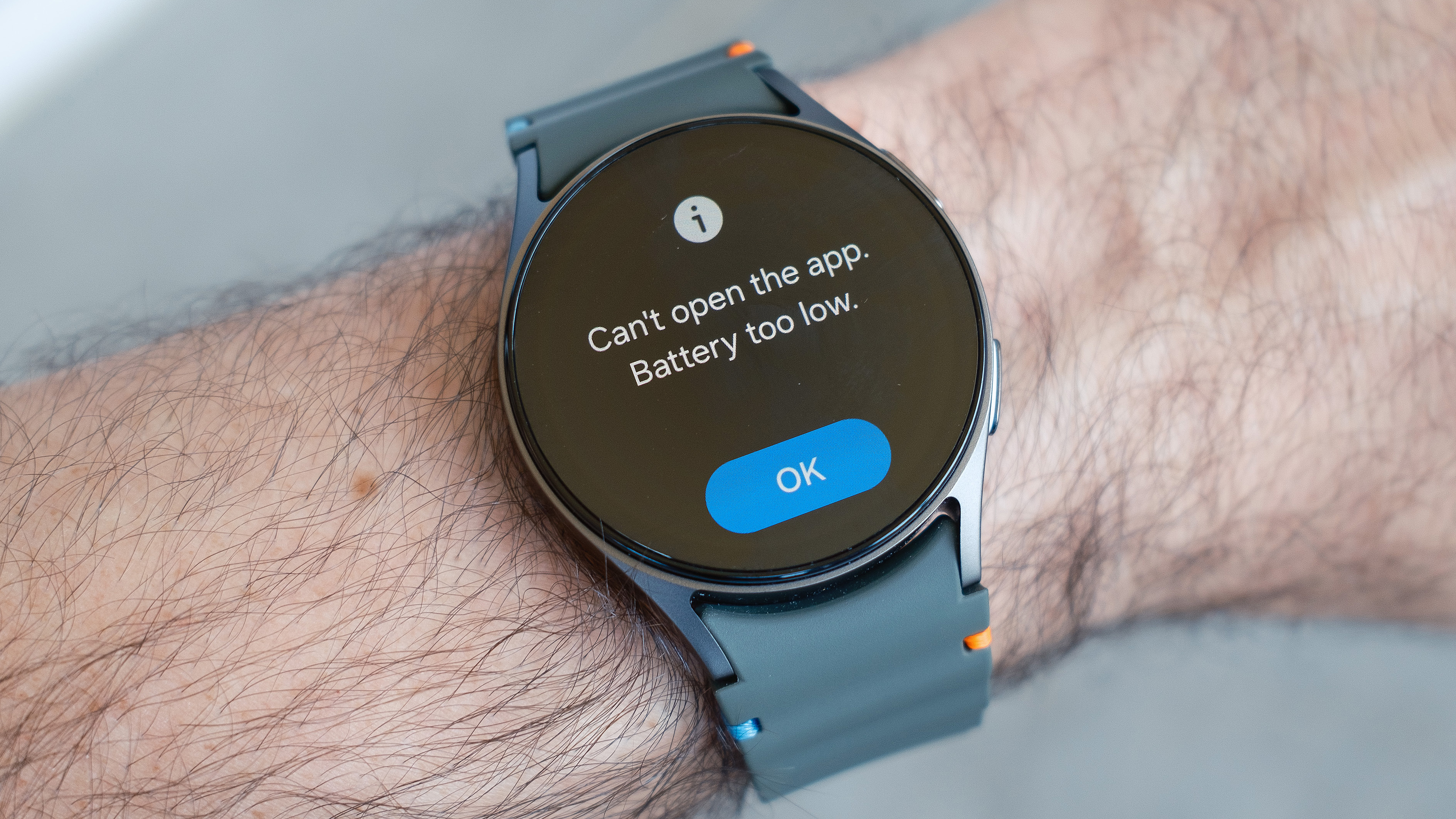
The Samsung Galaxy Watch 7 sports the same capacity battery in both the smaller and larger models as its predecessor. And even though the new Exynos W1000 processor is more efficient, it's also more powerful.
I tested the smaller 40mm Galaxy Watch 7 model and got roughly 24 hours of battery life using default power management settings with the always-on display turned on and the "limited health features" setting switched off.
With power save mode engaged — this turns off the always-on display, Wi-Fi, and the wake-up gesture, amongst other things — I managed 40 hours of juice. Both of these figures are frustratingly similar to the Galaxy Watch 6 and Galaxy Watch 5.
Ultimately, you can expect to charge the device at least every other night. That said, it takes around two hours for a full charge-up, which isn't too shabby.
Should you buy the Samsung Galaxy Watch 7?
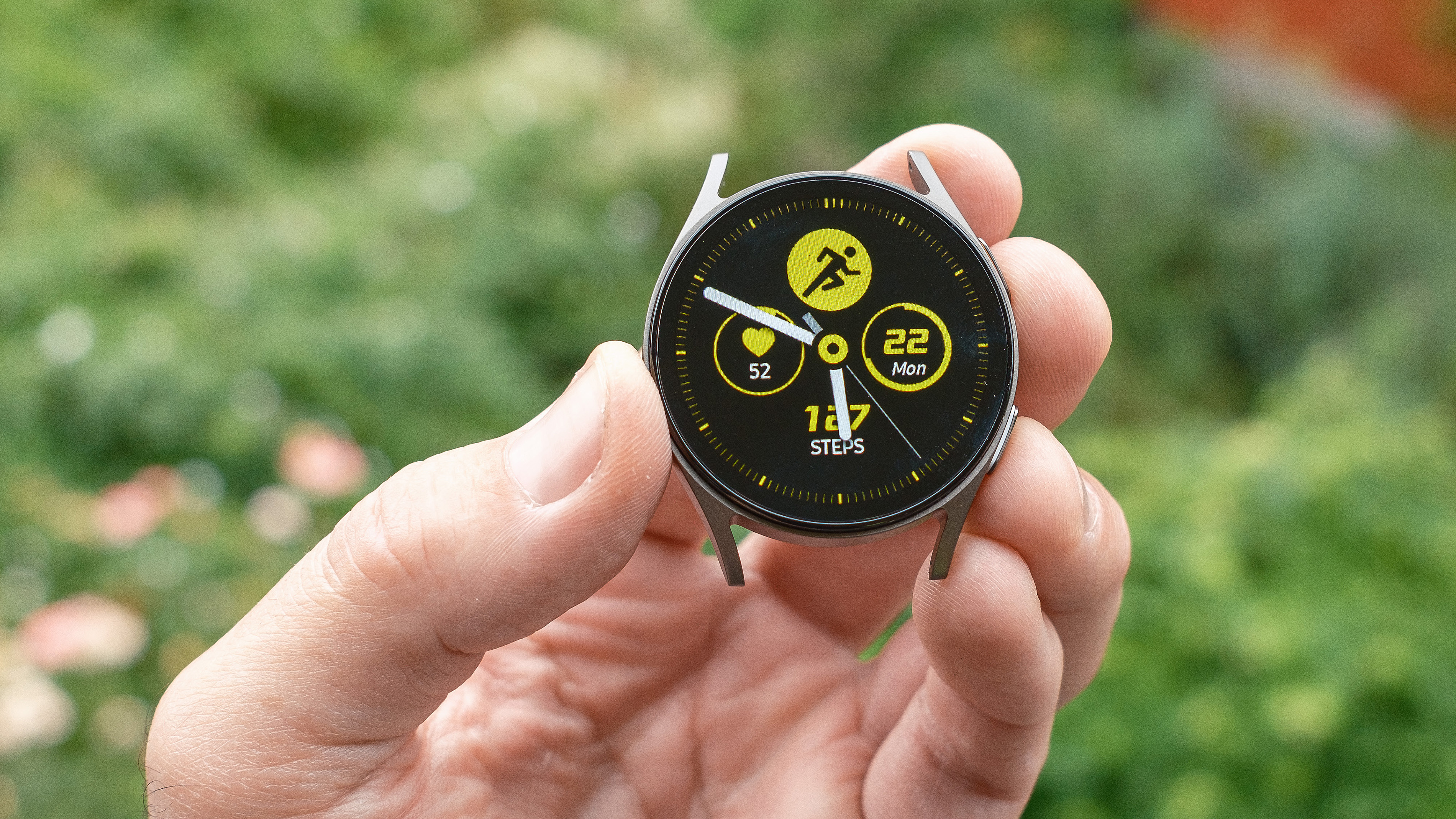
The Samsung Galaxy Watch 7 may lack the pizzaz of the Galaxy Watch Ultra and represent the same old design as all the Galaxy Watch devices before it but it lowkey boasts the most impressive wellness-tracking tech and features of any smartwatch I've tested in 2024, Wear OS or watchOS.
Built around Samsung's advanced BioActive health sensor, the Galaxy Watch 7 doesn't just provide a wealth of holistic metrics, it accompanies them with AI-powered tips, insights, graphics, and explainers that actually help users better understand their overall well-being and recent health trends.
Sleep insights are accessible after just a single night and easily blow other popular wearables out of the water in their level of detail and analysis. The device's Energy Score, similar to Garmin's Body Battery and Fitbit's Readiness Score, is also a great motivator for healthy habits and is updated daily.
The only real caveat: To get the most out of the Samsung Galaxy Watch 7 and the latest Galaxy AI health features, you'll need a Samsung Galaxy smartphone. While the watch will play nice with any old Android handset, you won't have access to all the best things that set the Galaxy Watch 7 apart from the Galaxy Watch 6.







